Research is finding more and more reasons to avoid consuming added sugar.
The overconsumption of added sugar is linked to weight gain and is associated with many serious chronic diseases such as obesity, heart disease, type II diabetes, and different types of cancer.
One of the main problems with sugar is that it adds calories to your diet and raises your blood sugar without any other nutritional contribution.
In general, dieticians recommend that you avoid foods with added sugar, and instead get your carbohydrates from whole grains and whole foods such as fruit and vegetables.
However, some of us have a sweet tooth, and fruit sometimes just doesn’t cut it. If you’re looking for healthy sugar alternatives for coffee, tea, or baking, the best sugar substitutes are natural products like stevia, sugar alcohols, and honey.
Let’s take a look at six tasty and natural sugar alternatives that can have benefits to your health.
What are the best and healthiest alternatives to white sugar?
Stevia: the natural sweetener with zero calories
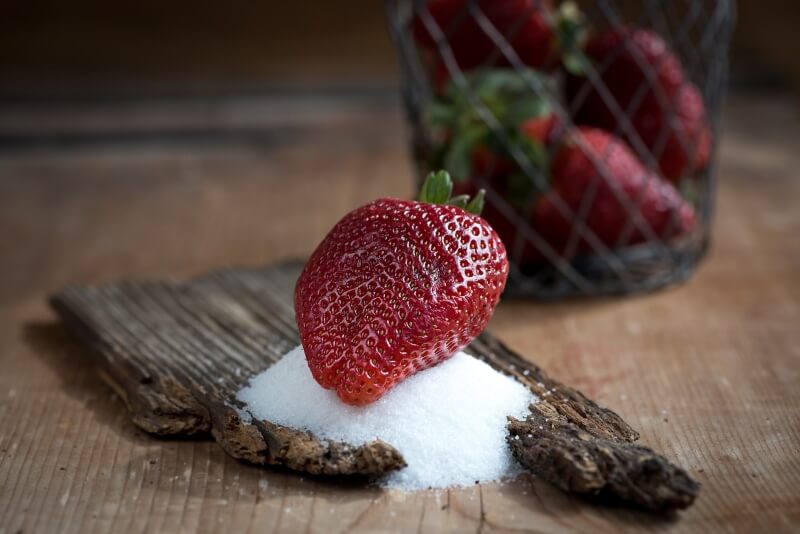
Stevia is a natural sweetener that is extracted from the leaves of the stevia plant. It contains zero calories (1) and has no known adverse health effects (2). In fact, studies show that the natural compounds in stevia can help lower blood pressure as well as blood sugar and insulin levels (3) (4).
Stevia is several times sweeter than regular sugar, so ½ teaspoon should be enough to replace 2-3 teaspoons of sugar.
It is one of the healthiest sugar substitutes and perfect for sweetening coffee as well as for use in some baking recipes. It may take some experimenting to figure out just how much you need to get the sweet taste that’s right for you and you need to adjust your baking recipes to make up for the loss of bulk.
If you are considering buying stevia, know that not all products labeled “stevia” taste the same. There are two different sweet compounds (stevioside and rebaudioside A) found in the stevia plant, and they taste slightly different. Additionally, different products contain these compounds in varying amounts.
Also, keep in mind that some “stevia” products are only partially stevia. The rest are chemical artificial sweeteners.
- SWEETLEAF STEVIA DROPS: Bring delicious sweetness back into your life with stevia, a...
- SUGAR-FREE COFFEE SYRUP: Naturally sweeten coffee and more (tea, baked goods,...
- AWARD-WINNING STEVIA DROPS: Winner of 36 taste awards, SweetLeaf makes the...
- KETO-KIND STEVIA LEAF: Our sugar-free pumpkin spice stevia liquid is keto-friendly,...
- WE MAKE LIFE NATURALLY SWEET: SweetLeaf was the company that first brought its...
Pros of stevia
- Contains zero calories, so it can aid in weight loss.
- Very sweet, so you only need small amounts of it to get the same level of sweetness as sugar.
- Health benefits include lower blood pressure, blood sugar, and insulin levels.
Cons of stevia
- The taste may take some getting used to.
- You need to adjust your baking recipes to make up for lost bulk.
Erythritol: a safe and very-low-calorie alternative to sugar
Erythritol is a sugar alcohol that occurs naturally in many fruits such as pears, watermelons, and grapes. Despite the name, it doesn’t actually contain any alcohol and is made by fermenting corn or birch wood. It has been classified by the FDA as safe and suitable for everyday use although very high doses may lead to digestive issues in some people (5) (6).
Erythritol is about 70% as sweet as sugar, but virtually calorie-free. There are 0.24 kcals per gram of erythritol versus 4 kcals per one gram of sugar. Since it’s slightly less sweet than regular sugar, you may want to use about 1/3 teaspoon more to get the same sweetness sugar provides.
It’s one of the few sugar substitutes that tastes similar to sugar, making it an easy switch when sweetening hot and cold drinks or sauces. When it comes to baking, it does not have the same properties as regular sugar (it melts instead of caramelizing), so it’s best used in sugar-free dishes (7). You’ll have to adjust the recipes if you want to use it for baking.
Erythritol is a great alternative sweetener to white sugar because it doesn’t raise blood sugar and insulin levels in healthy people (8). Our bodies don’t have the enzymes to break it down, so it gets absorbed directly in the bloodstream and doesn’t seem to have any of the harmful effects sugar does.
Pros of erythritol
- Almost calorie-free, which makes it great for weight loss programs.
- Tastes closest to sugar.
- Doesn’t raise blood sugar or insulin levels.
Cons of erythritol
- Large doses may cause digestive issues for some people.
- Doesn’t have the same properties as sugar, so can be difficult to use in baking recipes.
Xylitol: the substitute that tastes just like sugar
Like erythritol, xylitol is a sugar alcohol that is naturally present in many fruits and vegetables. Most people say it tastes exactly like sugar and can easily be substituted one to one. It’s best used to sweeten coffee, tea, and sauces but a little bit tricky to use in baking recipes.
Xylitol contains 40% fewer calories than sugar – one teaspoon of xylitol contains slightly less than 10 kcals versus 16 kcals for one teaspoon of sugar.
Studies show xylitol has multiple health benefits. It helps keep our blood sugar and insulin levels stable (9). It protects our teeth by reducing the risk of cavities and tooth decay (10). Surprisingly, it also increases our body’s absorption of calcium, further strengthening our teeth and possibly protecting against osteoporosis (11). However, eating too much xylitol can cause digestive issues such as gas, bloating, and even diarrhea. It’s also highly toxic to dogs, so if you have pets, make sure to store it in a safe area!
Pros of xylitol
- Less caloric than sugar.
- The taste is exactly the same as sugar.
- Associated with multiple health benefits including dental and bone health.
Cons of xylitol
- Difficult to use in baking recipes when substituting sugar.
- Can cause digestive issues when consumed in excess.
Honey: the most common sugar alternative
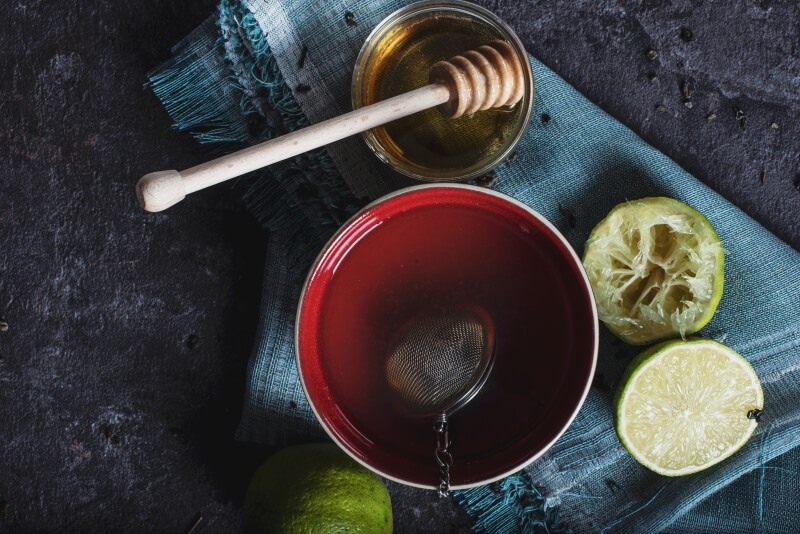
Honey is without a doubt the most popular sugar alternative that’s been used since the ancient times. It’s slightly less caloric than sugar – 1 teaspoon of honey contains around 12 kcals while a teaspoon of sugar contains about 16 kcals. However, honey is sweeter, and ¾ teaspoon of honey adds about the same sweetness as one full teaspoon of sugar.
Honey can be used to replace white sugar almost anywhere: use it your baking recipes or for sweetening drinks like tea, drinks, and home-made lemonade. However, the taste is different than sugar, so some people might not like adding it to their coffee.
Honey contains lots of beneficial plant compounds and has been used in medicine for thousands of years because of the health benefits it offers (12). For example, it is well-known for its soothing and antimicrobial effects, which is why it has been used to treat upper respiratory infection symptoms like cough in many cultures.
Furthermore, the many antioxidants in honey fight free radicals in our bodies and help reduce the risk of heart attacks and some types of cancer (13) (14). High-quality honey can also protect your heart by lowering triglycerides and cholesterol levels (15) (16). Honey is also used for treating wounds and burns, and the healing powers come from its anti-inflammatory and antibacterial effects (17).
Pros of honey
- Contains lots of healthy and natural compounds that can be good for our health.
- Lower in calories than sugar.
- Sweeter than sugar, which can decrease your total calorie intake.
Cons of honey
- High in fructose, which may cause health problems if consumed in excess.
- Not necessarily interchangeable with sugar for all purposes, due to its particular taste.
Maple syrup: a popular alternative to white sugar
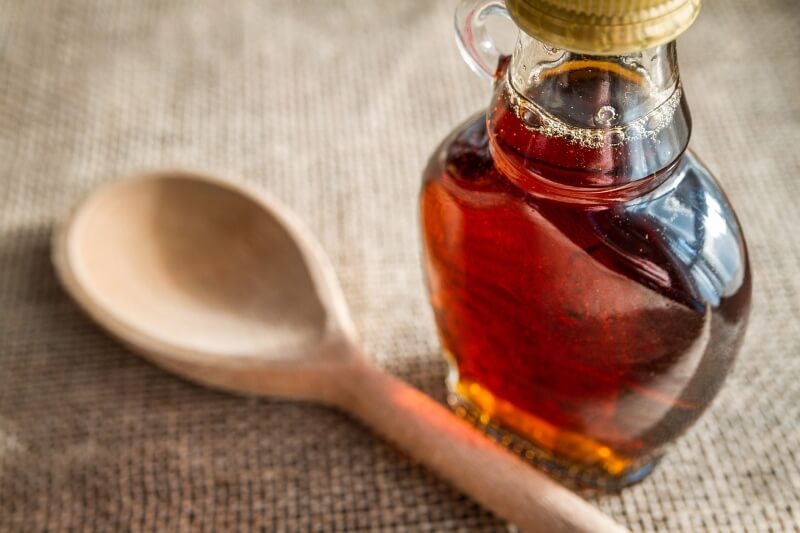
Maple syrup is derived from the sap of a variety of maple trees and is another very popular alternative to white sugar.
It’s lower in calories with one teaspoon of maple syrup containing about 10 kcals compared to 16 kcal in the same amount of sugar. Like honey, maple syrup is sweeter, so replace 1 teaspoon of sugar with about ¾ teaspoon of maple syrup.
The tasty syrup is perfect when used as a tea sweetener, it’s great for sweetening home-made lemonade and of course for dripping all over pancakes or even French toast.
Maple syrup is a healthier option than white sugar because while the latter is absolutely void of nutrients, maple syrup contains many different minerals like potassium, calcium, zinc, and iron and is loaded with antioxidants (18) (19).
As far as health benefits are concerned, some studies have shown that maple syrup may have anti-cancer benefits, but this has not been tested on humans (20). It does have a lower glycemic index than sugar (21), which means it doesn’t raise your blood sugar as fast as regular sugar.
Pros of maple syrup
- Contains healthy minerals, vitamins, and antioxidants.
- Lower in calories than regular sugar.
- Doesn’t raise blood sugar levels as fast as sugar does.
- Sweeter than table sugar, which may lower your overall energy intake.
Cons of maple syrup
- Very high in sucrose, which makes it very similar to white sugar.
- No proven health benefits.
Coconut palm sugar: a sugar substitute with unique taste
Coconut sugar has become very popular over recent years as more people are becoming aware of the negative health effects of added sugars.
It is made from coconut palm sap and has a pleasant and unique flavor profile with nutty tones. It’s an easy sugar substitute in almost all baking recipes (with a ratio of 1 for 1), but coconut sugar in coffee and tea tastes great too!
Although almost equal in calories to regular table sugar, coconut sugar also contains some fiber, antioxidants, and minerals like calcium, iron, potassium, and zinc (22). And while there are no known health benefits of coconut sugar, it has a slightly lower glycemic index than sugar (54 compared to 60) and can thus help maintain your blood sugar levels.
Pros of coconut sugar
- Contains some essential vitamins and minerals.
- Easy to use as a sugar substitute in almost all recipes.
- Its lower glycemic index may help maintain lower blood sugar levels.
Cons of coconut sugar
- High in sucrose.
- No proven health benefits.
- Similar glycemic index to sugar.
Why should you be substituting white sugar?
As mentioned at the beginning of this article, more and more research is demonstrating the negative health effects of consuming large amounts of white sugar.
Sugar is linked to many diseases
Not only is it almost single-handedly responsible for our expanding waistlines, but it’s also the cause of many diseases like type II diabetes, cardiovascular diseases, and cancer.
Sugar is everywhere and you are probably consuming too much of it
The worst thing is, you might not even realize just how much sugar you consume. From pasta sauces to baking mixtures and your breakfast cereal, the food industry sneaks in sugar into most foods.
The World Health Organization recommends keeping sugar intake under 10% of your daily energy intake (23), which translates to about 50 grams or 12.5 teaspoons for the average individual. Yet, Americans are consuming a whopping 82 grams (24) or 20.5 teaspoons of sugar every day.
While it can be difficult to manage hidden sugar intake, you can control what you put in your food. And fortunately, as you could see from the article, there are many ways to sweeten drinks and baking recipes naturally without adding white sugar.
You can also effectively cut down sugar intake by reading labels and choosing foods with lower or no added sugar content.
Summing it up
There are some healthy ways to sweeten your foods with sugar alternatives and cut down your highly refined white sugar intake.
Keep in mind that although honey, maple syrup, and coconut sugar contain healthy minerals, vitamins, antioxidants, and the like, they still have high sugar content.
If you just want to replace sugar with them, you’ll be fine as long as you consume them in moderation, but do not add them to your diet. And if you’re trying to lose weight, it’s best you steer clear of them altogether and use natural sugar substitutes like stevia, erythritol, or xylitol instead.
FAQs – Healthy Substitutes for Sugar
What is the Healthiest Alternative to Sugar?
The healthiest alternative to sugar is stevia. It’s a natural sweetener derived from the leaves of the Stevia rebaudiana plant. Unlike sugar, stevia has no calories, and it doesn’t spike your blood sugar levels, making it a safe choice for diabetics and those looking to reduce their sugar intake. I personally love using stevia in my recipes, and it’s a sweet swap that supports my healthy lifestyle!
What Can I Replace Sugar With?
Replace sugar with honey, maple syrup, or agave nectar. These natural sweeteners have fewer processed ingredients and provide small amounts of vitamins and minerals. I’ve replaced sugar with honey in my teas and baking, and the sweetness is just right, plus it feels more nourishing!
Is Stevia More Healthy Than Sugar?
Yes, stevia is healthier than sugar. It doesn’t contribute calories or carbohydrates to your diet, which helps in weight management and blood sugar control. I find it a great help in keeping my meals healthier without giving up sweetness!
What is the Safest Artificial Sweetener to Use?
The safest artificial sweetener to use is generally considered to be erythritol. It doesn’t affect blood sugar, insulin, cholesterol, or digestive health. In my kitchen, erythritol is a go-to for recipes where I want to keep the sweet taste without the extra calories or sugar concerns!
Healthy & Natural Sugar Alternatives Infographic
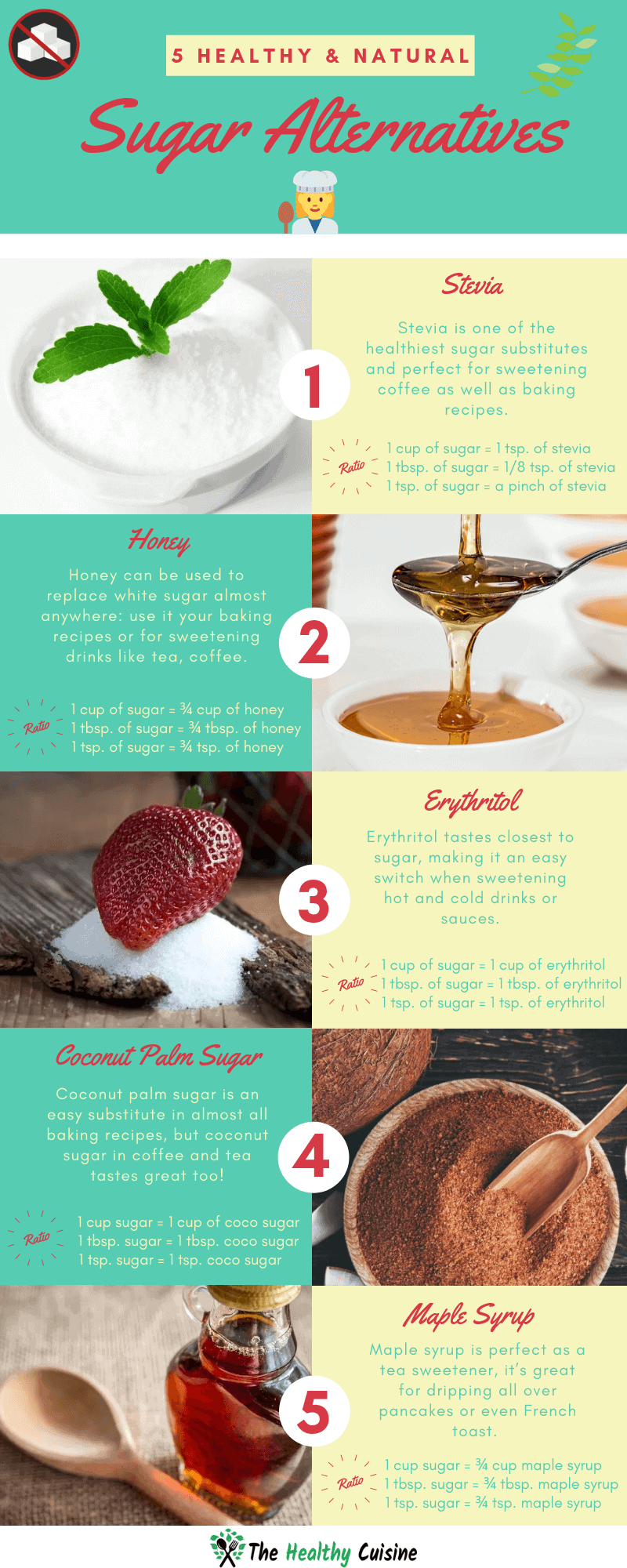






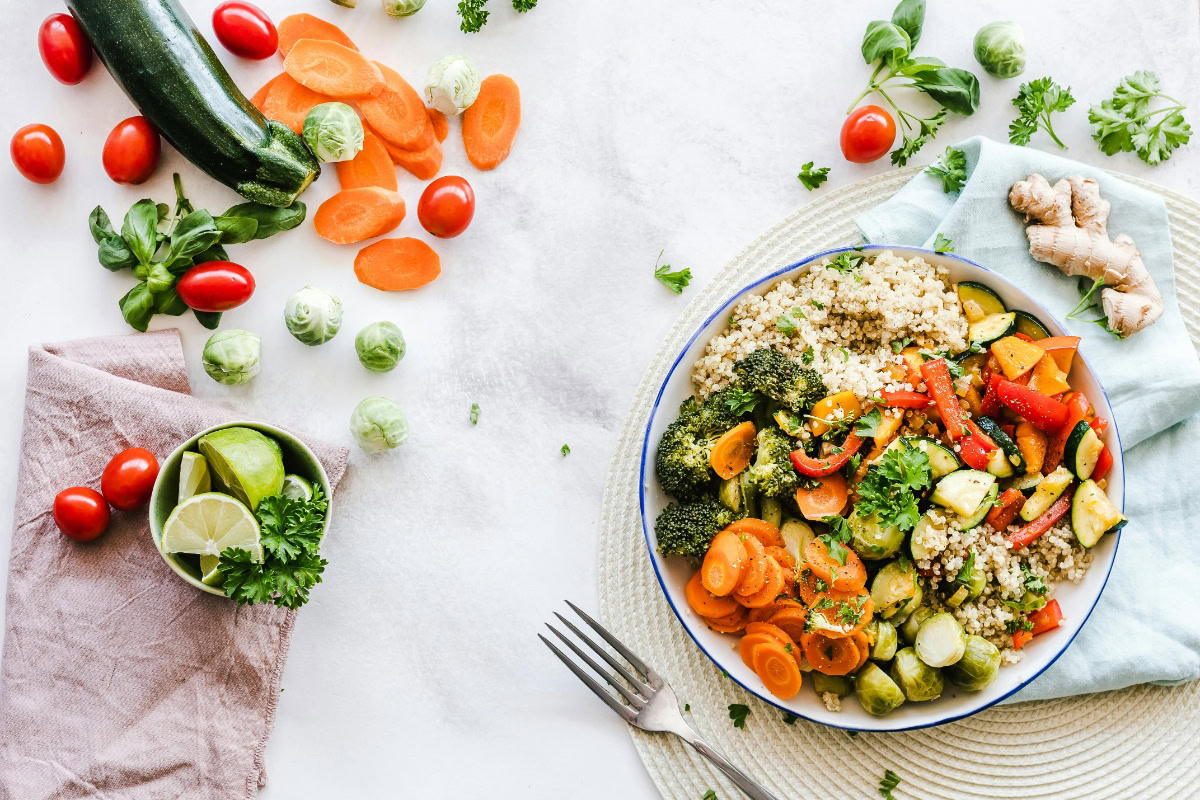

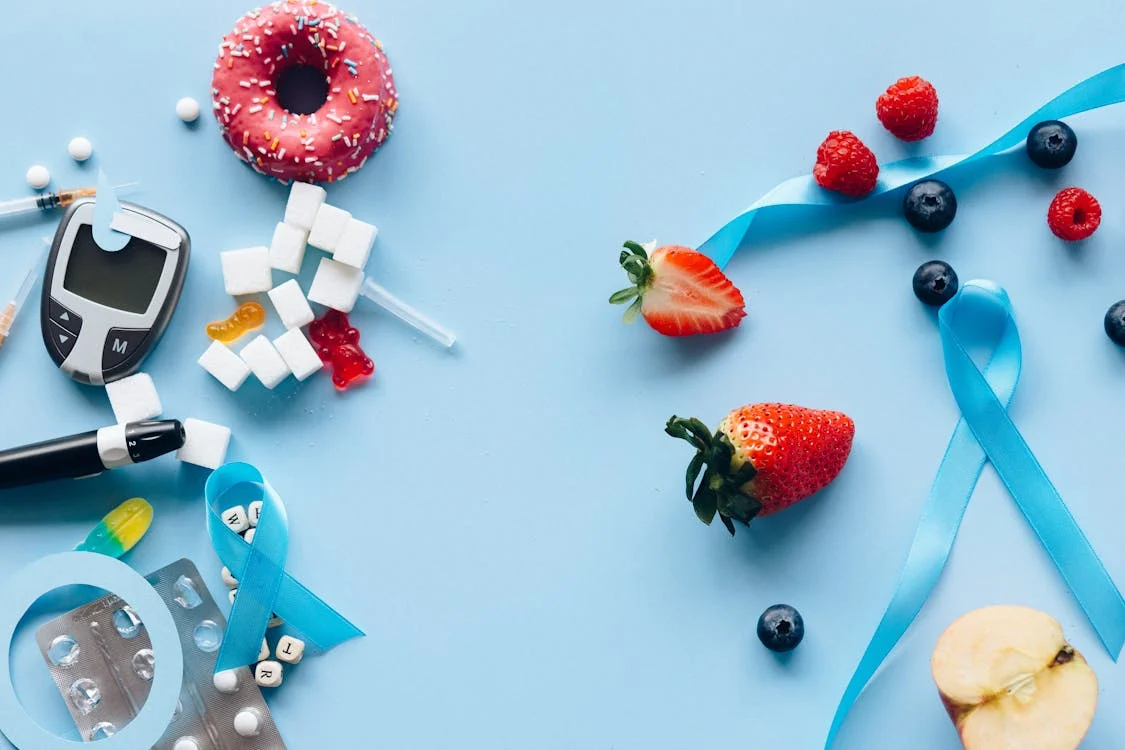
Great article here are some more natural sweeteners that you can use instead of processed sugar, like dry dates powder, Coconut Jaggery, Palm Jaggery